I love reading “year in review” blog posts, especially the ones that get really honest about what did and didn’t go so well. As usual, I read Chris Guillebeau’s own #AnnualReview post as soon as I found it in my inbox.
And since this was such a major year for me in both my professional and personal life, I wanted to add my own review into the mix.
January 2015 marked one year of my website being live, but less than 6 months of me working full-time growing this thing. And what came next was TOUGH.
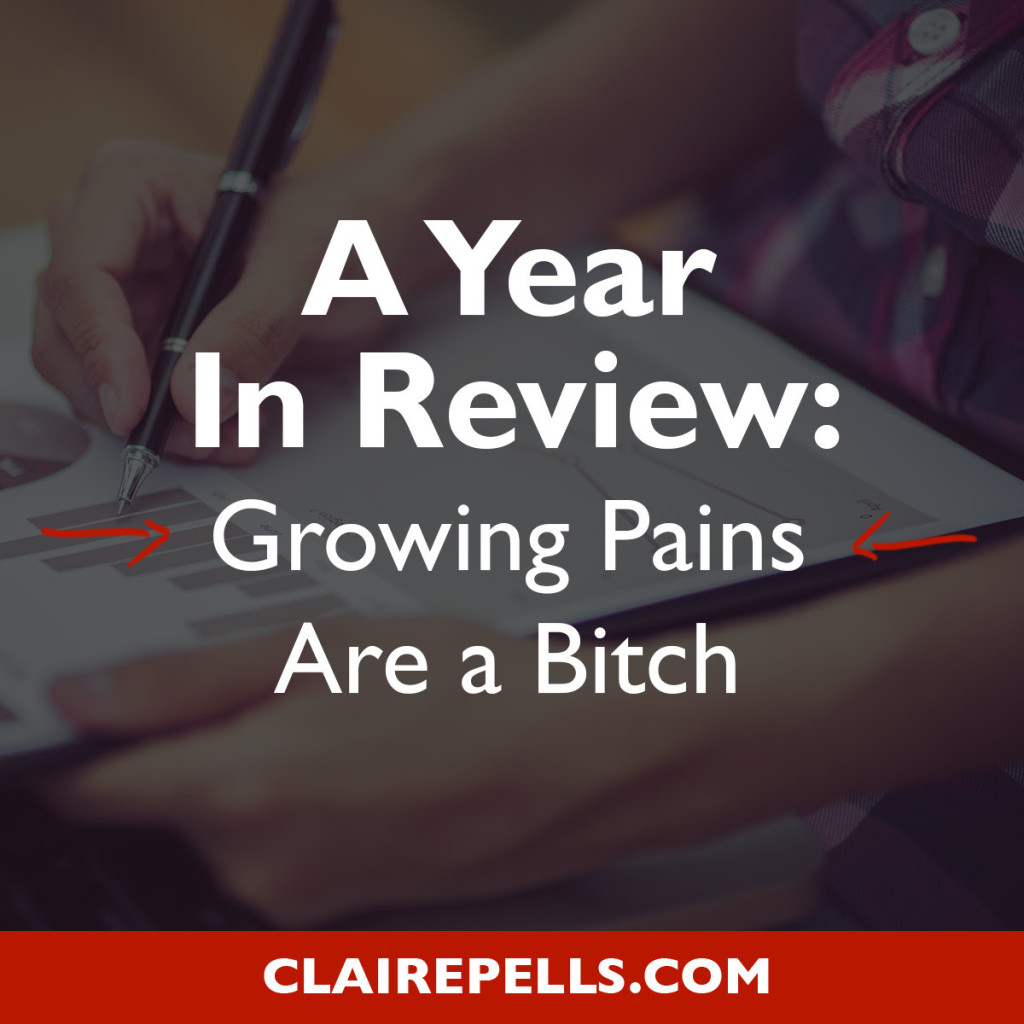
Here are 6 of the lessons I learned in 2015:
1. Going to conferences is worth the money, even if you can’t pin down the ROI right away.
The first real business conference I went to was MozCon in Seattle, and I walked away from it SO unbelievably jazzed up. Even though a lot of the content was geared towards larger companies with SEO and social media departments, the experience of meeting new people who were doing similar work as me (and geeking out about it just as much!) was incomparable. I made some great contacts and loved this travel-for-work thing.
Here’s the catch: I didn’t pay for almost any part of that conference: not the ticket, the flight nor the hotel. So it was a ton of fun, I learned a lot, and it was all on someone else’s dime. Win-win!
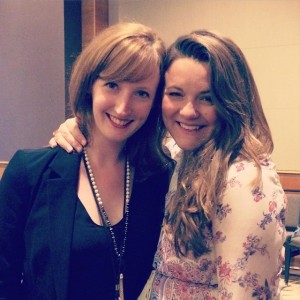
Attending a business conference this year was a whole different story. I had been interested in going to Nathalie Lussier’s Off the Charts Live conference for a while, but this time I’d have to get myself from Buenos Aires to Dallas, pay for the conference ticket, hotel room and all other travel expenses out of my business’s (a.k.a. my own) pocket.
I used miles to book the flight, but even so, the conference ended up costing me well over $2,000. And on top of what I paid, there was almost a full week that I didn’t work very much on my business, which is a different kind of expense.
“Was it worth it?”
Abso-fucking-lutely.
The benefits of attending were countless, but for me, 2 things stand out in my mind:
- The in-person interactions and inspiration gave me the confidence I needed to launch the Get Paid Podcast and to finally run the beta round of the Ad Consultant Incubator. I had had both ideas for soooooo long, and yet mentally I wasn’t ready (a.k.a. I didn’t think either would be very successful). But enough conversations about both finally helped me get over the mindset issues I had, and these projects ended up being huge parts of my 2015.
- I found my business BFFs. I was welcomed into a group that had slowly been forming over the years, and these ladies have continued to be an incredible support system since May. I’m gonna let one of said ladies, Val Geisler, explain a bit more about the process of forming a fantastic mastermind group since I could never do it better.
“Have you made back your investment in the conference?”
Financially? Yes, both directly and indirectly. I met people there who ended up being customers and clients of mine, so that’s the direct ROI. And since I may never have run the Ad Consultant Incubator if I hadn’t attended Off the Charts Live, then there’s lots of revenue that has come in as an indirect result of attending.
“What are your future conference-attending plans?”
Sadly Nathalie won’t be hosting the Off the Charts Live conference again, but if she were, I would definitely be there with bells on.
Another event I’d love to attend if I weren’t going to be 8 months pregnant at the time is Selena Soo’s in New York this February. Tickets are sold out already, but there’s a waitlist, so get in touch with them if you’re in the area.
A few other conferences that are on my wishlist are:
- World Domination Summit (I “unconferenced” this one in 2014, which means I went to meetups, etc. but not to the actual conference. In the future, I would definitely get an official ticket; lots of times the inspiration and motivation you get post-conference come from the actual conference sessions and not just from the people you meet.)
- Authority Rainmaker ← this is the link for the 2015 event. I couldn’t find anything about next year’s conference yet.
- The Before Conference, hosted by one of the lovely people I met at Off the Charts Live, Tena Pettis. Check out some super cheap early bird tickets on sale until December 31, 2015.
- Podcast Movement
- Quiet Power Strategy Summit
2. You really do need a budget.
I talked about my money troubles and the solution that completely changed my business over on this blog post, so I won’t go into detail here.
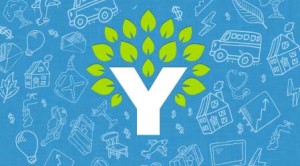 All I can say is that if you’re not working with a bookkeeper who will keep your spending in check, you should really check out the You Need a Budget software. It’s $60 (or a little cheaper with this affiliate link of mine) and it will seriously blow your mind. Just do it.
All I can say is that if you’re not working with a bookkeeper who will keep your spending in check, you should really check out the You Need a Budget software. It’s $60 (or a little cheaper with this affiliate link of mine) and it will seriously blow your mind. Just do it.
3. Having an assistant isn’t the same as really utilizing your assistant.
I hired Gwen, my virtual assistant, in April 2015. In the first month or so, she easily reached the 20 hours per month that I had estimated I’d need her for. But shortly after, I found that her invoices to me were for MUCH fewer hours than that. I couldn’t believe it – she was doing so much for me (or I so I thought)!
What I came to realize, however, was that once Gwen got through the learning curve, the actual tasks I had her doing each week took up very little time. What’s much worse, however, is that I started taking tasks BACK from her and was doing them myself!
This happened mostly as a result of me changing my content marketing around. For 2 or 3 months after I launched my podcast, I stopped blogging (more on that in a second). So Gwen no longer needed to proofread my posts, upload them to Wordpress, go through the checklist, etc.
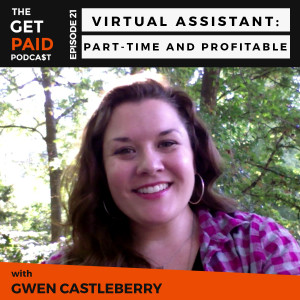
Except each podcast episode still had a post that was written and published in Wordpress . . . I just wasn’t giving them to Gwen to handle. Usually I was doing it all at the last minute, and/or I was too much of a control freak to let someone else take this on.
Eventually I made some videos about uploading podcast episodes, asked Gwen to turn the videos into a SOP (Standard Operating Procedure) doc, and handed her the reigns.
If I had never actually taken the leap and given her complete responsibility for getting the podcast published, she wouldn’t be able to handle it on her own in January when Season 2 will be launching, or in April or May when Season 3 goes live (and I’ll be on maternity leave).
I also started assigning her tons of small tasks in Asana that I had no problem handling myself. In fact, in the time I spent assigning the task, I probably could have gotten most if not all of it done myself.
But by giving her the responsibility, it paved the way for me to hand off the same tasks or similar ones in the future. She already knows how the task needs to be completed (and has probably turned it into a SOP doc for us) so it’s super easy to get it done.
Here are some of the things Gwen helps me with:
- Responding to everything to comes into the info@clairepells.com inbox. When she’s not sure of the answer or if I need to assess a prospective client’s question, she’ll forward it to me, and I’ll send her my brief answer. She’ll reword it in her response.
- Managing everything related to my Absolute FB Ads affiliates. The affiliate program is open to anyone who has bought Absolute FB Ads, but Gumroad doesn’t give them a direct way to sign up or access all of the links, so she created the system and communicates with the affiliates about how it works. I’ve completely removed myself from all of that back-and-forth.
- Dealing with Acuity (affiliate link). I have SO many different calendars and appointment types in there, it’s hard to keep it straight. Gwen sets it all up and maintains it for me.
- Proofing, formatting and uploading everything that goes on the blog.
- Loading and sending out my newsletter email if I’ve written it in advance, which I almost never have.
- Setting up automation in Zapier.
- Handling various launch-related tasks like setting up products or services in PayPal, importing and exporting subscribers, creating tags and automation in ConvertKit (affiliate link).
- Drafting up testimonials based on survey responses from clients or customers, and then sending those testimonials for approval.
- Maintaining our company wiki doc with all the important and frequently used links.
- Creating and maintaining SOP docs for our major systems.
- Creating and sending out Typeform surveys for various company uses.
So if you’ve got people that you’re paying to help you out in your business, let them really help you out!
Make a list of all the things you need to get done in the next week, and then see what you can actually just hand off to your VA. If you have to make a little explainer video, do it. It’ll be worth the extra ten minutes it takes, especially in the long run.
4. Leaving money on the table can make you completely doubt everything . . . but (hopefully) it’s worth it in the end.
Saying no to revenue is reeeeeeeeeally hard, especially when times are tight (or are about to get tighter). Every single time I listen to an episode of The Tropical MBA where they talk about productized services, I kick myself and say “Claire, why are you so dumb that you don’t offer a service running other people’s Facebook ads?”
It’s been the same struggle since I started my business: do I or don’t I want to run other people’s ads for (big) money?
The answer is that I don’t – I’ve got a post coming out soon about why not – but I constantly reconsider my position on it when big clients with big projects come my way. Especially when they’re prospective retainer clients. I’m staring at the possibility of steady revenue coming my way, and yet my gut says “DON’T DO IT!”
(I usually don’t do it, but sometimes I cave with specific projects.)
There’s absolutely nothing wrong with offering Facebook ad management services. In fact, I’ve gotten to train several people who are awesome at it and are making great money off of it. It’s simply not what I love doing most, which is teaching.
So I’ve turned down a whole lot of revenue and that overhyped six-figure year that we’re supposed to be striving for in favor of spending my workdays on projects I really love. And I’ve got my fingers so tightly crossed that it all pays off in the end. :)
5. Make sure you know what your people want before you make it.
This is another lesson that I’ve already talked about on this blog, so I’ll let you review the story of me freaking out right before I launched a product because no one had EVER expressed any interest in learning what I had to teach at your leisure.
But it’s important to bring up here because I think it’s a really common mistake: you come up with an idea, get SUPER excited about it, and start working on a product, a challenge, or even just a free guide to XYZ before actually talking to your audience about it.
And it can result in some really loud and annoying crickets when it comes to launch time.
Here’s what you can do instead:
- Use Tara Gentile’s Living Room Strategy to sell your group program before you create anything. Details on how it’s done can be found here and here. I followed Tara’s advice and made almost $20K with the first round of the Ad Consultant Incubator.
-

Test your ideas first! Write a blog post with the bare bones of your idea and run some Facebook ads to your own list/fans to see what the response is. Make sure you get a conversation going in the comments so you can get lots of specific feedback!
- Email your previous customers/clients to run your idea(s) by them. Find out if your new offering is appealing to them and/or would help them solve a specific problem.
- Get some of your subscribers on the phone to talk about what they’re dealing with in their business.
- Search for topics related to your idea in Facebook groups, and engage with the question-askers in a completely helpful, not-pitching-them-anything kind of way. It’s amazing what kind of market research you can do in Facebook groups just by paying attention to the questions people are asking.
6. Podcasting is hard . . . and worth it.
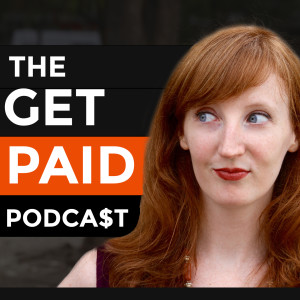 It’s not that I didn’t believe people when they talked about the time and energy podcasting involves. I heard them say that it was NOTHING like publishing a blog post every week. I understood that editing takes a lot of time – it was not my very first time at the audio editing rodeo.
It’s not that I didn’t believe people when they talked about the time and energy podcasting involves. I heard them say that it was NOTHING like publishing a blog post every week. I understood that editing takes a lot of time – it was not my very first time at the audio editing rodeo.
And yet the process of recording, editing and publishing an episode every week still knocked the wind out of me and my business.
A friend of mine recently suggested a podcast-based business idea to me, and I told him to go jump in a lake he’d have to get me sponsors or investors for me to even think about it.
(FYI: neither sponsors nor investors will give you money for just an idea, so this was me blowing him off in the nicest way possible.) So he asked, “well what actually goes into podcasting? Why does it take up so much time?”
The answer is too long to include here; I actually started to write it but didn’t want to put you to sleep.
Just know that things like researching guests, writing out social media posts, and tagging files all take up much more time than you think. I probably spent at about 8-10 hours each week on producing one episode, FAR longer than any blog post I’ve ever published.
So in order to make time for it all, I stopped blogging. I gave myself a break, which was nice, but it hurt my traffic and revenue numbers. So I made it a priority to go back to blogging in the final quarter of the year, and my revenue shot up as a result.
(Thank you Google Analytics for helping me make that very profitable decision!)
Despite the drop in revenue and the constant scurrying to get the next episode out there, the benefits of podcasting made it truly worth it. I was able to connect with my audience in a much more intimate way, reach a whole new set of people, and establish myself even further as a publisher of high-quality content for other entrepreneurs.
Plus I had the opportunity to have deep and fascinating conversations with business owners I had always admired from afar, and I look forward to meeting even more interesting people as I continue on with future seasons!
So those were my biggest lessons learned from 2015, my first full calendar year of being in business. Got any questions for me about any of the behinds-the-scenes of my business? Let me know in the comments below!
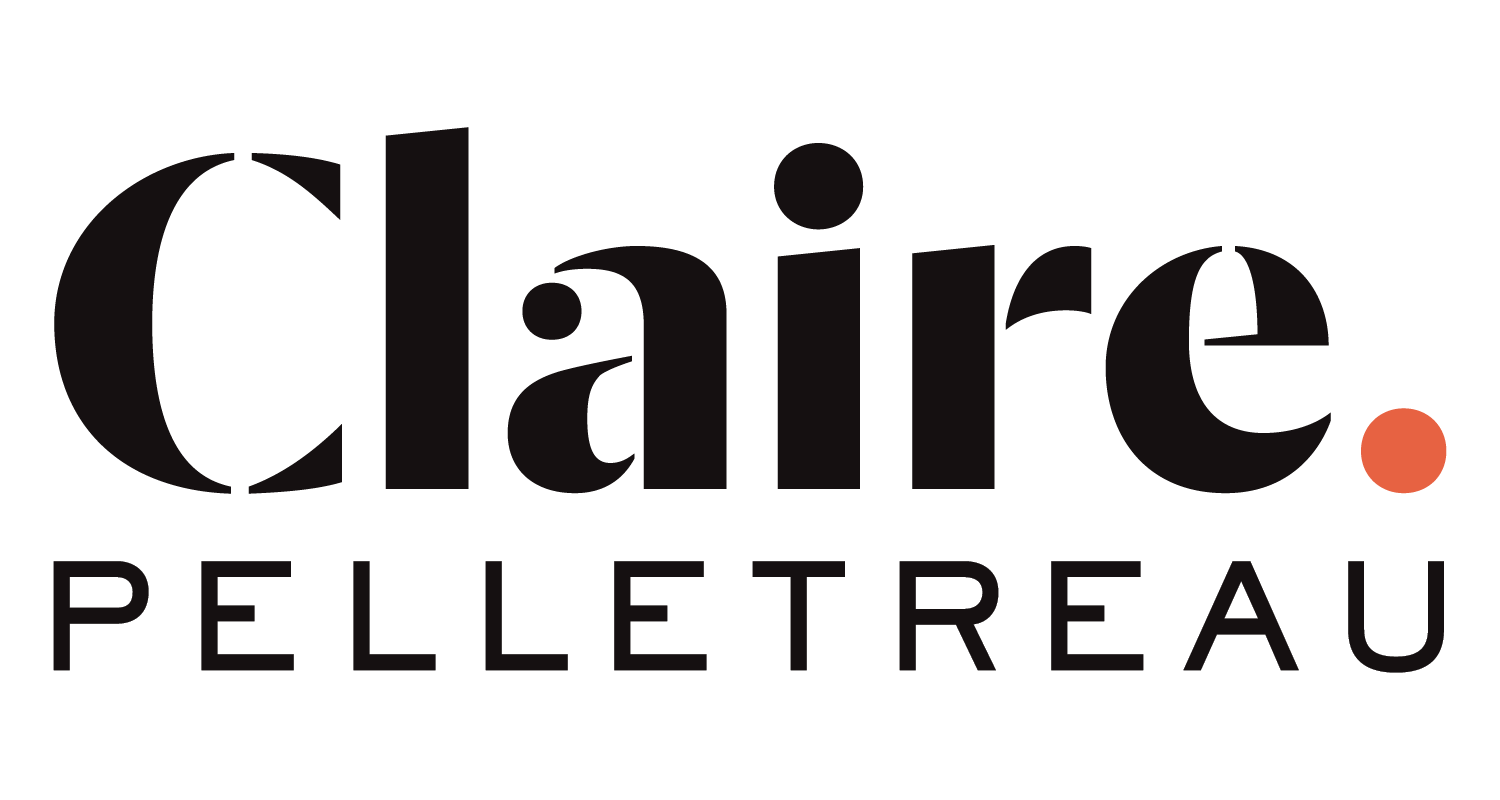
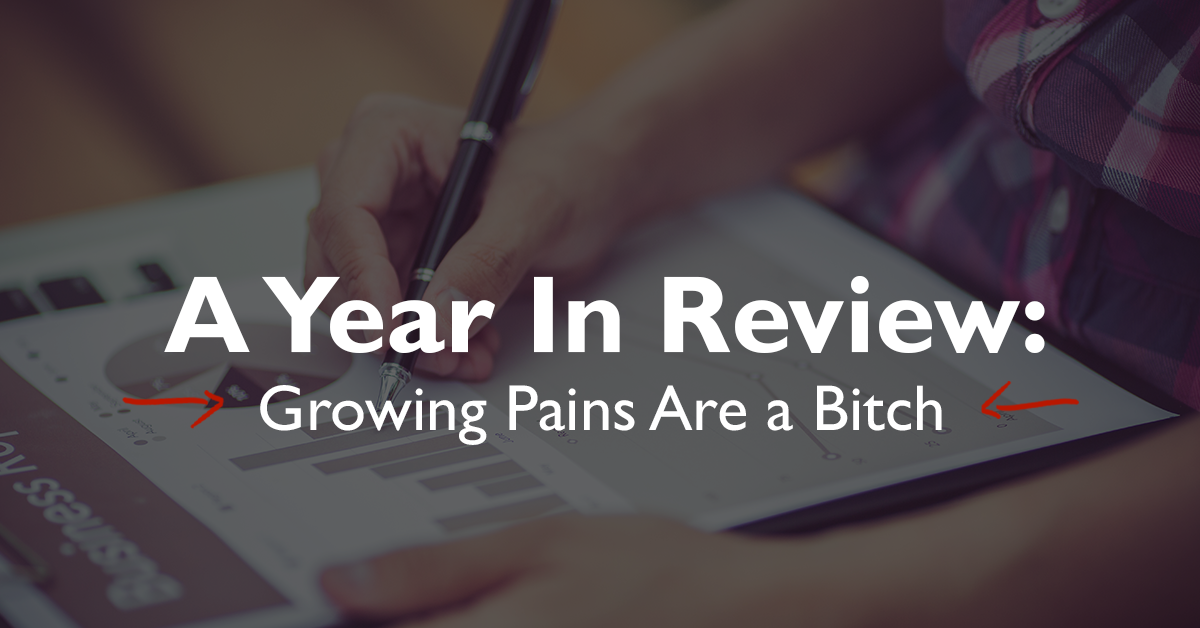


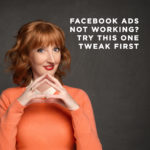





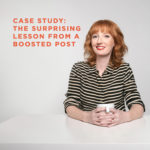

Great post, Claire. Thank you for the insight.
I do have a few questions/comments:
1) What were the listener (download?) numbers for your average episode? What about the highest and lowest episodes? You don’t have to name names if you don’t want to hurt anyone’s feelings, and I really just want to better understand the metrics.
2) How do your listener stats change over time? For example, if your average episode had 1,000 listens, then how much of that number came in the first week, first month, and any other useful metric you can provide? I’m sure as you continue to put out future episodes, and pick up new listeners, the ‘back catalog’ listener stats will gradually increase as well.
3) I am interested in what goes into the 8-10 hours of *your* time per podcast, and how much of that could be ‘subbed out’. If you get a chance, search for the “I Love Marketing” podcast episodes (2 or 3 of them, I think) that talk about the entrepreneur’s frustration with trying to be a “self milking cow”. We all struggle with it but he (Dean Jackson) has come up with a way of expressing it which makes it easy to identify & understand, and he’s gotten really serious about fixing it in his own business.
4) I hope you are starting to say yes to those large contracts/retainers, partnering them with your top incubator clients, and developing an agency sory of set up – or at least a revenue sharing model. I think it’s cool that you recognize your preference is in teaching, but that doesn’t exclude you from making money on the “doing” also.
Thanks for giving us a great experience this year, and best wishes for an even better next year.
Hey Chris, answers below!
1. On average my episodes got about 1K downloads in the first 7 days of being live, and then would see a trickle of more downloads over time. My most downloaded episode was my first full one with Tara Gentile: more than 4K downloads. The episodes that didn’t do as well featured business models that probably few of my listeners have as well. The lowest number was around 700 in the first week and 1.1K over time.
2. Kind of answered above. My older episodes generally have more downloads, somewhat depending on the guests.
3. I literally wrote down 90% of what those tasks were and then couldn’t finish it, even just writing about it was time consuming! But the bulk of the time was recording and editing, naturally. My episodes aren’t short at all, so that’s where I spent ages. And then all the extra things like researching or vetting potential guests, writing shownotes, writing and recording intros/outros, writing out social media posts . . . all of these things can and have been outsourced. But not every contractor ended up working out, or generating enough results for the investment to be worth it.
For the next seasons, I have sponsors, an editor and my VA who is now trained in a lot of the process. I’ll still be somewhat involved, but not like during the first season. I wouldn’t continue doing it if I had to be so involved!
4. Trust me, I’ve thought about the agency model a lot, and while I’m not going to say NEVER, it’s not the kind of business I’m interested in building right now. But we’ll see how things play out when I come back from maternity leave in the second half of 2016!
Thanks so much for reading, Chris! It’s always a pleasure to see you here in the comments. :)
Wow, good answers, and so quickly too!
I’m glad you are handing off more of the podcast work to others, and have found a sponsor to help cover those costs. Looking forward to season 2.
We’d love to have you at Podcast Movement in 2016, Claire :-)
Aww, thanks! I do love Chicago. :)
I really enjoyed this blog post. I will be at Podcast Movement next year. I live in Chicago so it’s up the street. But one question though, where did you find your VA? Did you find it best to pay a flat rate per month or an hourly rate?
Hey Justice! I found my VA by putting together a job description plus application, emailing my list about it, and posting it on my personal FB profile, asking people to share. Gwen, who I hired, was a friend of mine from our college days and she saw the post on Facebook.
I personally enjoy the fact that she charges me hourly. The workload changes from month to month, so I don’t need to stress about using up all my hours with her. Granted, since we started working together she has changed how she charges and now has more of a retainer agreement where people have a minimum number of hours that they pay for each month, and those hours don’t roll over. I am (for now) exempt from that rule. :)
And I really wish I could make it to PM next year but I doubt I’ll be able to swing it with a newborn baby in tow!
Awesome stuff, Claire! Your authenticity, candor, humor, and wisdom are WELL needed in this industry. It is a blast to follow your journey and learn from you!
Thanks so much, Austin! I’d love to read your own YIR post if you decide to write one. :)
Ooh! Maybe I should. I don’t have a blog quite yet, but that’s in the works. Although I did record a video on my last birthday, which took place in 2015 – “23 Things I Have Learned in 23 Years of Life.” Here’s a link if you find yourself with a spare 11 minutes. :) https://www.facebook.com/austin.beals/videos/10206803304310019/?permPage=1
1. I hope you ALWAYS use video in your marketing. You’ve got a great presence!
2. In your next “lessons learned” video, I’d love to hear the backstory behind some of the things you learned. I bet it would help you connect with your audience even more since they’d feel more connected to you and your life. I’m certainly curious about what led you to that list.
3. Get that blog up ASAP! You’ll have faithful readers very quickly. :)
So glad you were part of my 2015, Austin!
1. Wow, thank you! I really take that to heart. I appreciate it.
2. That’s a great point! I will definitely apply that in the next video. Also, I’d like to know the subject matter more, and do a little bit of editing so there’s less time spent looking down at the paper (hopefully none, for a clean crisp video).
3. Okay! :)
And I feel the same! I’m looking forward to the even more fertile soil of 2016. Thanks for planting some helpful seeds!
You rock. That is all xxx
YOU DO. Oh and I wore my polka dot swimsuit to the beach yesterday in your honor (and because it covers the bump.)
Loved this post Claire! The part about leaving money on the table resonated with me.
I’ve been trying to do that with my business, saying no to consulting work to focus on scaling. Sometimes doubt creeps in so I read your post at the right time!
It’s sooooo hard, even now that I feel like I’ve figured it out (kind of). I’m rooting for you, Meryl!